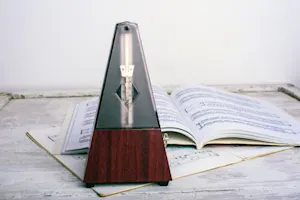What Makes This Word Tick
"Tomfoolery" brings to mind light-hearted antics and harmless mischief. It conjures images of someone pulling playful pranks or indulging in ridiculous yet endearing escapades. This word dances on the tongue with whimsy and isn't meant to cause any real trouble—just a sprinkling of mirth and merriment.
If Tomfoolery Were a Person…
If "tomfoolery" were a person, they'd be that jovial uncle at family gatherings, the one with the knack for cheesy jokes and unexpected magic tricks. You might find them with a whoopee cushion at the ready, perpetually in the mood to raise spirits and coax laughter from even the most reserved among us.
How This Word Has Changed Over Time
"Tomfoolery" has maintained its essence of juvenile jests and nonsense throughout centuries. The term has retained a consistency in its frivolous charm since the medieval times when "Tom Fool" was an archetype for a simpleton. Over time, it evolved into a descriptor for silly behavior rather than the person embodying it.
Old Sayings and Proverbs That Use Tomfoolery
"Tomfoolery begets more tomfoolery," an old saying suggests that once silliness starts, it tends to snowball. Another lesser-known gem is, "A day without tomfoolery is a day wasted." While you might not find them in the books, these capture the spirit of endless laughter and youthful exuberance.
Surprising Facts About Tomfoolery
Did you know the word "fool" historically referred to court jesters? These jesters were more than mere entertainers; they often used clever quips and tomfoolery to speak truths others could not. It's also intriguing that what some may call tomfoolery, others have viewed as genius—especially those innovative pranks that spark genuine surprise.
Out and About With This Word
In daily life, you might spot "tomfoolery" anywhere joy and liveliness are in full swing—from lively birthday parties where adults try their hand at silly games to casual workplace pranks designed to lighten the mood after a long meeting. It's essentially the sparkle in spontaneous fun.
Pop Culture Moments Where Tomfoolery Was Used
Tomfoolery is alive and well in pop culture. Think of the slapstick humor in classic films like "The Three Stooges" or more modern-day antics on shows like "Jackass." Whether it’s pie-in-the-face gags or absurd situations, this word serves as the backbone for comedic chaos on screen.
The Word in Literature
"Tomfoolery" finds a cozy spot in literature, typically appearing in humorous or light-hearted fiction. Authors who enjoy painting with a comedic brush, such as P.G. Wodehouse or Terry Pratchett, would no doubt embrace its rollicking spirit, sprinkling it among their characters' antics.
Moments in History with Tomfoolery
In the 18th century, British elites famously indulged in "Grand Tour" abroad, where tomfoolery was almost a rite of passage. Young aristocrats engaged in what could only be described as tomfoolery—a blend of cultural naiveté and youthful exuberance that occasionally turned infamous.
This Word Around the World
While "tomfoolery" is distinctly English in origin, every culture has its equivalent notion. In France, "bêtises" capture similar ideas of foolish behavior, though often with a nod to childlike innocence. In Japan, the phrase "yakko," reminiscent of class clowns or jesters, carries a playful sense of idiocy.
Where Does It Come From?
The roots of "tomfoolery" sprout from "Tom Fool," a character synonymous with village idiots since the Middle Ages. Historically, "Tom" was a common placeholder for an average man; thus, "tomfoolery" became a way to describe behavior befitting the town jester, laced with lighthearted mockery.
How People Misuse This Word
Sometimes "tomfoolery" is taken too seriously, mistakenly associated with malicious or reckless behavior. The word is all about laughter and harmless tricks, not the kind of prank that leaves someone in tears or peril. Another misuse arises when it's equated with "foolishness" devoid of the playful aspect.
Words It’s Often Confused With
Folly: Focuses on lack of good sense or foresight but lacks the playful innocence of tomfoolery.
Antics: Though similar, antics often suggest deliberately absurd behavior.
Pranks: Usually implies more structured practical jokes, whereas tomfoolery can be entirely spontaneous.
Additional Synonyms and Antonyms
Synonyms for "tomfoolery" might include antics, clowning, or horseplay. Antonyms could range from seriousness and sobriety to solemnity, which all convey the absence of mischief and caprice.
Want to Try It Out in a Sentence?
"After the tension of the morning meeting, the team's tomfoolery during lunch—complete with a surprise rubber chicken—was a welcome relief."
















